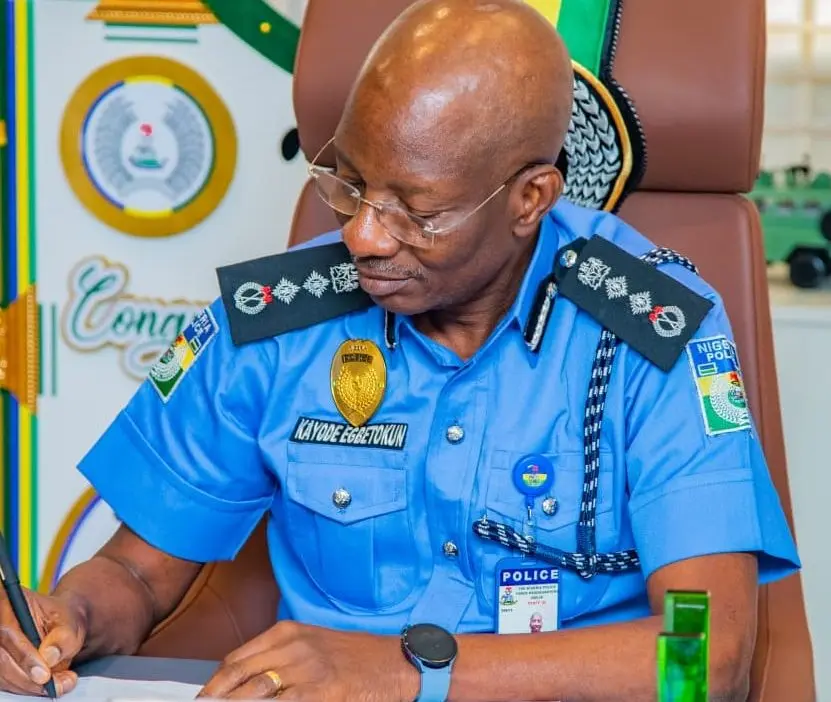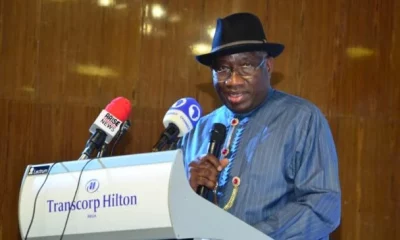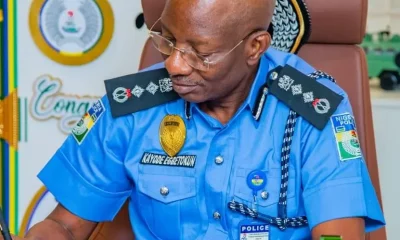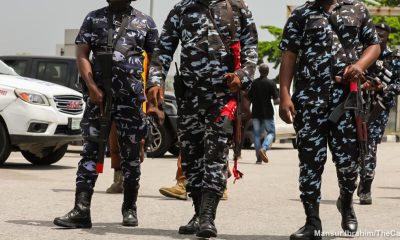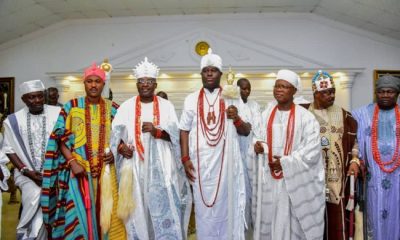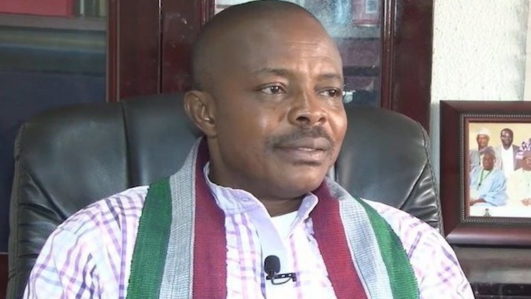The inspector-general of police, Kayode Egbetokun, says Nigeria is not “mature” for state police.
Egbetokun spoke on Monday at a national dialogue on state police organised by the house of representatives in Abuja.
The theme of the dialogue is ‘Pathways to Peace: Reimagining Policing in Nigeria’.
Represented by Ben Okolo, an assistant inspector-general of police, Egbetokun said Nigeria is not ready for a decentralised police force.
“It is the submission of the leadership of the Nigeria police force that Nigeria is yet to mature for the establishment of state-controlled police,” he said.
There have been renewed calls for the establishment of state police following an uptick in kidnappings, banditry and violent attacks across the country.
On February 15, the federal government set up a committee to explore the creation of state police, amid the spate of insecurity in the country.
On February 20, a bill to establish state police passed second reading at the house of representatives.
The IGP said rather than create state police, the challenges mitigating against effective policing in Nigeria should be addressed.
He listed some of the challenges as inadequate manpower, inadequate operational equipment such as vehicles, arms and ammunition, communication equipment, drones, aerial surveillance cameras, security surveillance helicopters, armoured vehicles, and inadequate training of personnel.
He said these challenges have impacted negatively on the performance of police personnel.
He also said state police is open to abuse from powerful state governors.
“Then there is the potential for abuse of power by the state political leadership. State governors could use the police forces under their control for political or personal gain and compromise human rights and security,” he said.
“There would also be a conflict of jurisdiction.”
‘NSCDC SHOULD BE A DEPARTMENT IN THE POLICE’
Egbetokun also proposed that the Nigeria Security and Civil Defence Corps (NSCDC) and the Federal Road Safety Corps (FRSC) should be merged to become a department in the police.
“In view of this, the police leadership rather is recommending the following instead of creating state police,” he said.
“First, the Nigeria Security and Civil Defence Corps, Federal Road Safety to form a department under the Nigerian police.”
He said the recruitment of police personnel into the force should be increased by at least 30,000 annually to meet the minimum policing standard of the United Nations.
Egbetokun’s stance contrasted with that of Ibrahim Gaidam, minister of police affairs, who backed the establishment of state police.
Gaidam, who spoke at the event, said a more decentralised police force will help tackle rising insecurity in the country.

 News3 years ago
News3 years ago
 Entertainment2 years ago
Entertainment2 years ago
 News3 years ago
News3 years ago
 Privacy3 years ago
Privacy3 years ago
 Sports2 years ago
Sports2 years ago
 Entertainment2 years ago
Entertainment2 years ago
 News3 years ago
News3 years ago
 Opinion3 years ago
Opinion3 years ago
